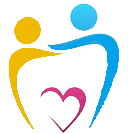Disability versus Diverseability
As one of only 25 specialists in Special Needs Dentistry in Australia, it is my privilege to care for people living with disability. This includes people with various conditions affecting senses (sight, hearing, sight, smell), cognition (intellectual impairment), physical capacity (injury, movement disorders, chronic pain), psychosocial circumstances (mental health, homelessness, trauma) and medical health (cancer, autoimmune conditions).
I personally dislike the word “disability,” as it carries stigma and negative associations. The “DIS” in “disabled” focuses on what the individual is unable to do. My approach in caring for my patients, is focussing on what they CAN do, and believing in their ability to achieve what others believe is not possible. Many of my patients have broken through those limiting beliefs imposed on them, again and again.
I believe we should not define people by what they can or can’t do. We should define people by who they are: a unique human, who holds intrinsic value because there is no other human on the planet like them.
Language is a powerful tool in shaping our perceptions and understanding of the world. I prefer the term, “diverseability.” It focusses on the individual’s ability, and how their abilities are different and diverse – and this diversity that enriches our society, is so beautiful and valuable.
I’ve connected with many different individuals who have lived experience with disability and there are differing opinions around preferred terms. Some individuals with acquired disabilities prefer the term “disabled” – as they feel it reflects their status when comparing to their abilities prior to their condition. While individuals who had their conditions since birth prefer the term “diverseability” because they don’t believe they were born “disabled,” or less able, just diverse and different. As such, I am not necessarily advocating for the language to change, but sharing this to open a new perspective and different way of understanding and experience of the word “disability.”
If this has resonated with you, I encourage you to be bold and share your thoughts too. Each conversation brings greater understanding, and greater understanding of those different to ourselves is how we build a more inclusive society.

